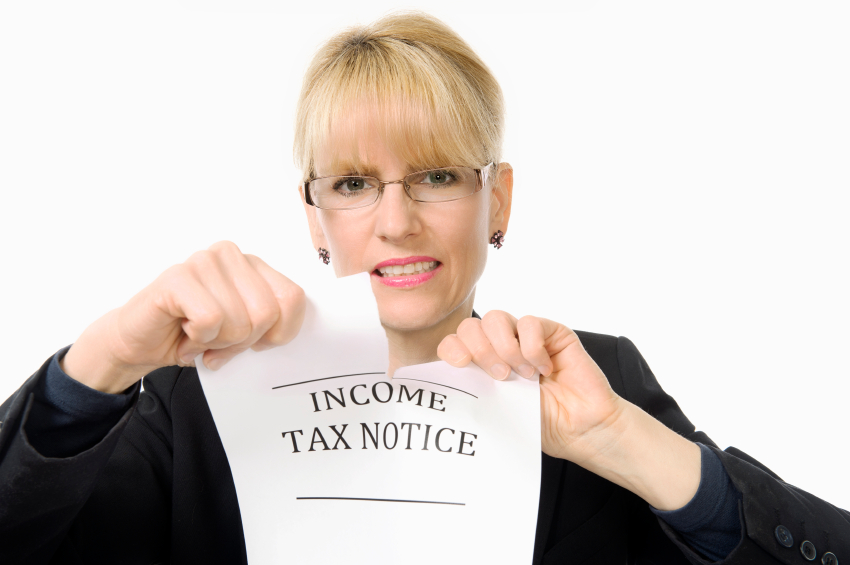The IRS and the FTB are-for some purposes-just like any other creditor. The “automatic stay”-the bankruptcy tool that stops the collection actions of virtually all of your creditors-applies just the same against your tax creditors.
Are you currently being pursued by the tax authorities and are wondering how to get relief from them? Or you’re worried that you are in their gun sights and will be hearing from them any day? Either way, you’ll be glad to know that your bankruptcy filing will immediately stop them.
This is particularly important because the IRS and the FTB have legal collection tools that are much more aggressive and hurtful than those of conventional creditors. Because of this, sensible people often act in ways that hurt themselves in the long run when it comes to taxes. They understandably are afraid what will happen when they can’t pay the taxes they owe. So they do things like not file tax returns when they are due, as a result delaying when such a tax could be written off in bankruptcy.
The interplay between bankruptcy and tax law is quite complicated, but a great first step is in understanding how the “automatic stay” protects you against your tax creditors.
The “Automatic Stay”
The filing of your bankruptcy case immediately triggers the ” automatic stay ,” one of the most powerful and important tools of bankruptcy. It is goes into effect 1) automatically at the filing of your bankruptcy case at court, and 2) stops all collection actions against you and against any of your assets.
The Bankruptcy Code gives a list of what is forbidden for creditors because of the “automatic stay. They include:
- starting or continuing an administrative proceeding related to a tax debt
- seizing your property or possessions to pay a tax debt
- recording a tax lien
- enforcing a tax lien against any of your possessions or property
- collecting any tax debt (that existed when your bankruptcy case was filed)
Applicability of the “Automatic Stay” to the Tax Authorities
As you no doubt have heard, income taxes are treated quite differently than your conventional debts when it comes to the discharge (legal write-off) of your debts. But with the “automatic stay,” the IRS and the FTB are treated just about like any other creditor.
The law says so. The Bankruptcy Code specifies that the “automatic stay” is “applicable to all entities.” ( 11 U.S.C. Section 362 (a) .) So, are the IRS and FTB “entities” that the “automatic stay” applies to? Conveniently, the Code specifically defines “entity” to include “governmental unit.” Since the IRS and FTB are clearly “governmental units,” they are clearly subject to the “automatic stay.”
What if They Still Don’t Comply with the “Automatic Stay”?
To make the “automatic stay” effective, Congress created bad consequences for creditors that do not pay attention to it. If the IRS or FTB disregards the law, and you are “injured by any willful violation of [the automatic] stay . . . [you] shall recover actual damages, including costs and attorneys’ fees, and, in appropriate circumstances, may recover punitive damages.” (See Section 362(k) .)
After getting slapped around by the courts a while ago, the tax creditors can now generally be counted on to respect the “automatic stay.”
Special But Minor Exceptions for Tax Creditors
There ARE a few sensible exceptions to the “automatic stay” that apply to “governmental units.” ( Section 362(b)(9) .) These pertain to the IRS’ and FTB’s legal responsibility to accurately determine the amount of your tax debt. These exceptions do not directly pertain to tax collection. These allow tax agencies to:
· demand that you file your tax returns,
· assess your tax and tell you how much you owe, and
· audit you to figure out the amount you really owe.
The “Automatic Stay” Is Just the Beginning
The “automatic stay” provides protection only during the length of your bankruptcy case-usually about three or four months for a Chapter 7 case, and three to five years for a complete Chapter 13 case.
Under Chapter 7, if you have any taxes that are not discharged, you must make arrangements to pay them through monthly installments or to work out some kind of settlement.
Under Chapter 13, your “plan” has to provide for paying those non-discharged taxes during the course of your case, but you do so under very favorable conditions .Either way, the “stay” provides immediate protection, often when you most need it, so that you can use the rest of the benefits of bankruptcy to get the overall relief you need.
For more information on how bankruptcy can stop tax collection contact an Orange County Bankruptcy Attorney .

